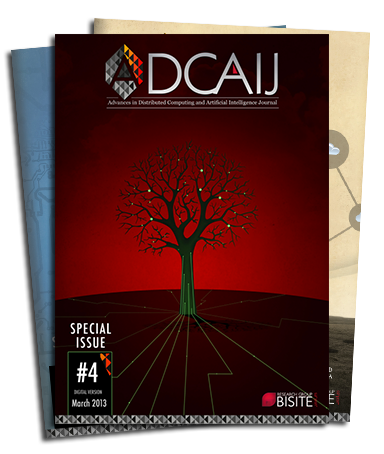8th International Conference on Decision Economics (DECON'26)
When the tail takes over: Does the tail of finance wag the dog of the real economy? Celebrating 50 Years of Hyman P. Minsky’s 1975 book “John Maynard Keynes”*
The 50th anniversary of Hyman P. Minsky’s seminal work, John Maynard Keynes (1975), provides an opportunity to reflect on Minsky’s profound insights into financial instability and their enduring relevance in light of several recent economic crises. The Global Financial Crisis started in 2007-2008— often referred to as the Great Recession, along with what came next—and the ongoing turbulence in financial markets underscore the prescience of Minsky’s analysis of systemic vulnerabilities and the destabilising tendencies of financial capitalism.
We invite academicians, researchers, and practitioners to respond to this Call for Papers, which explores the intersections of Minsky’s interpretation of Keynesian economics and contemporary, recurring financial instabilities. Submissions should critically engage with Minsky’s thought, assessing its applicability to current economic challenges and its potential to inform policy solutions. Indeed, the conference aims to bring together scholars of different traditions/schools of thought in order to discuss the causes and consequences of financial instability in contemporary economic systems and assess Hyman P. Minsky’s legacy.
The above and some broader questions and issues about the intellectual forces operating in the development of scientific thought will be examined in the course of the Conference, together with the founding topics of DECON. This year, too, the challenge is undoubtedly both theoretical and paradigmatic but also rigorously methodological, empirically, computationally, and experimentally grounded. It applies to all aspects of the interdisciplinary methodological approach that stems from the work of Hyman P. Minsky (1975). The underlying approach concerns several fields of science, starting with mathematics, statistics, economics, and social structures, while spilling over into other research fields. Papers in the 2026 edition of Decision Economics are encouraged to support more interdisciplinary work accordingly.
DECON 2026 welcomes a wide variety of methodological approaches, including:
- Experimental research: Papers that use laboratory or field experiments to explore Minskyan concepts of financial instability and market behaviour.
- Computational modelling: Analyses employing agent-based models or computational simulations to investigate systemic risks and policy interventions in financial markets.
- Empirical studies: Research grounded in historical data or case studies examining financial crises through a Minskyan lens.
- Theoretical approaches: Conceptual papers that critically evaluate Minsky’s interpretation of Keynes and propose extensions or modifications to his framework.
Essential references and some background reading
- Bellofiore, R., & Ferri, P. (2001). Minsky on financial instability: Theoretical issues and empirical evidence. International Review of Applied Economics, 15(1), 61-77.
- Keen, S. (2013). A monetary Minsky model of the Great Recession. Journal of Economic Behavior & Organization, 86, 221-235.
- Kindleberger, C. P. (1978). Manias, panics, and crashes: A history of financial crises. New York: Basic Books.
- Mehrling, P. (1999). The vision of Hyman P. Minsky. Journal of Economic Behavior & Organization, 39(2), 129-158.
- Minsky, H. P. (1975). John Maynard Keynes. New York: Columbia University Press.
- Minsky, H.P. (1977). The financial instability hypothesis: An interpretation of Keynes and alternative to standard theory. Challenge, March/April, 20–27.
- Minsky, H. P. (1982). Can ‘it’ happen again? Essays on instability and finance. Armonk, NY: Sharpe.
- Minsky, H. P. (1986). Stabilizing an unstable economy. New Haven, CT: Yale University Press; new ed., New York: McGraw-Hill, 2008.
- Minsky, H. P. (1992). The financial instability hypothesis. Working Paper No. 74, The Jerome Levy Economics Institute of Bard College, New York.
- Minsky, H. P. (2004). Induced investment and business cycle. Northampton: Edward Elgar Publishing.
- Roncaglia, A. (2013). Hyman Minsky’s monetary production economy. PSL Quarterly Review, 66(265), 79-96.
- Wray, L. R. (2010). What Minsky means by “Keynes”. Journal of Economic Issues, 44(2), 485-492.
- Wray, L. R. (2011). Minsky’s money manager capitalism and the global financial crisis. International Journal of Political Economy, 40(2), 5-20.
- Wray, L. R. (2015). Why Minsky matters: An introduction to the work of a maverick economist. Princeton, NJ: Princeton University Press.
* Given the topicality of the subject, several verbs included in this Call are intentionally conjugated in the historical present.
Topics
- The Keynesian theory of financial markets: Keynesian-type instability and crisis theory.
- Financial fragility and crises: How does Minsky’s financial instability hypothesis illuminate the mechanisms underlying the 2008 crisis and the persistent instability in today’s global markets? .
- Financial frictions and the financial accelerator: Contemporary perspectives in macro-financial modelling.
- Theoretical and empirical investigations into financial deepening and financialisation.
- From efficient financial markets to the theory of crises.
- The rise of money manager capitalism and its implications for economic theory and policy.
- Keynesian economics and modern instabilities: To what extent can Minsky’s reinterpretation of Keynes offer solutions to mitigate the recurring cycles of boom and bust?
- Banking supervision, macroprudential policies, and financial regulatory frameworks.
- Lessons from the Great Recession: How can policymakers draw on Minsky’s work to address the challenges posed by financial deregulation, the proliferation of complex financial instruments, and global interconnectedness?
- Interconnectedness of bank and firm networks: Implications for systemic risks.
- Minskyan Perspectives on Contemporary Financial Reforms: What role do institutions play in promoting stability within inherently unstable financial systems, and how might Minsky’s emphasis on regulatory frameworks guide modern reform efforts?
- Policies for addressing financial and monetary instability: Conventional and unconventional methods and instruments.
- Excessive leverage, asset bubbles, and the dynamics of the financial cycle.
- Shadow banking, securitisation and the emergence of financial crises.
- Excessive leverage, bubbles, and the financial cycle.
- Socialisation of investment: The role of the State as employer of last resort.
Originating in 2015, DECON embodies original and comparative research, as well as annual follow-up assessments on decision-making and economics, aggregate outcomes, and implications for social and cognitive sciences. It involves several international research institutions and over three hundred authors and academic departments. In the continuing spirit of international cooperation, the steering and organising Committee of DECON issues this Call for Papers, culminating in the annual three-day Symposium to be held in hybrid form Naples (Italy).
SPECIAL CONFERENCE TRACKS
In addition to the main conference track, eight special sessions are also planned to enable insights into economics, decision-making, cognitive sciences, and related subjects. They will represent further highlights of the seventh edition of Decision Economics by connecting a dynamic and interdisciplinary group of researchers to the Conference:
(i) “AI-driven Decision Making” (AIDM) is an immersive session organised and coordinated by Stefano Za and Marco Smacchia (University of Chieti-Pescara, Italy), and Michele Cipriano (Catholic University of the Sacred Heart - Piacenza). One of the interests of this special track is related to the design and evaluation of AI-driven decision making. At the same time, this track also raises the question of whether and how relatively more rational and mindful decision-making could depend on human-driven and AI-driven policy influence.
(ii) “Ethics of Decision-Making and Economics” (EDME) is a consolidated session organised and coordinated by Tony E. Persico (Georgia Institute of Technology, Atlanta, United States), Tony Guidotti (Harvard University), and Elizabeth Garlow (New America Foundation). The session aims to discuss and understand today’s ethical challenges in political economy and economic policy, focusing on economic methodology and the philosophy of science and economics.
(iii) “Smart Heuristics for Civil Servants” (SMAHCS), launched by Rino Rumiati (University of Padua) and Davide Pietroni (University of Chieti-Pescara), is a thought-provoking conference session that explores various topics related to effectively engaging with the complexity and uncertainty inherent in the issues the civil service and public administration institutions face.
(iv) “Economics, Law and Psychology in Taxation: Perspectives and Critical Issues of Behavioral Taxation” (BETA) by Salvatore Villani and Loredana Strianese (University of Naples Federico II) is a well-established conference session aimed at disseminating recent advancements and emerging trends in the psychological analysis of economic behaviour pioneered by scholars such as George Katona.
(v) “Socio-Behavioural Research and Human-Centred Design” (SOCBER) by Ionut Virgil Serban (University of Craiova) and Gianmarco Cifaldi (University of Chieti-Pescara) is a conference session intended to highlight behavioural science on decision-making and design research, understanding the stakeholders’ perspectives to help policies and programmes respond properly to human evolving needs.
(vi) “Decision-Making for Public Sector Recovery” (DEPSER) by Simone Cifolelli and Lorenzo Fabiani (University of Turin) is a session that has reached its second year of operation and aims to broaden perspectives and inspire action to reaffirm the strategic role of the State, regulation, local government, and public finance in the economy of uncertainty.
(vii) “Evolution of Organisations and Systems through Blockchain Technology and Tokenisation Economy” (EOS) by Aurora Ascatigno (University of Chieti-Pescara) and Sowelu Avanzo (University of Turin) is a novel scientific session that delves into the conceptual roots and real-world complexities of Decentralised Autonomous Organisations, conceived as socio-technical ecosystems that intertwine the threads of economics, computer science, and organisational theory.
(viii) “Law and Economics Issues” (LEI) by Andrea Toto (The Italian University Line of Florence) and Lorenzo Fabiani (University of Turin) is a novel session focussed on the interplay between legal structures and market innovation. The session seeks to explore the significant impact that legal structures have on shaping economic dynamics.
For further insights, see https://www.decision-economics.net/tracks
Format
All papers must be formatted according to the SSDC template, with a maximum length of 10 pages (minimun 4 pages) including figures and references:
Submission
All proposed papers must be submitted in electronic form (PDF format) using the DECON conference management system.
Review process
DECON welcomes submissions with a preference for topics listed in the Call for Papers. All submitted papers will undergo a rigorous peer review process; each paper will be referred by at least three experts in the field, and be selected based on originality, quality, soundness, and relevance.
** Indexing: The books of this series are submitted to DBLP, INSPEC, Norwegian Register for Scientific Journals and Series, SCImago, SCOPUS, WTI Frankfurt eG, zbMATH, Google Scholar, Springerlink. **
Special Issues
Authors of papers selected from DECON will be invited to submit an extended version to special issues featured across several journals:
Authors of selected papers from DECON and the co‑located events will be invited to submit an extended and improved version of their work to the Advances in Distributed Computing and Artificial Intelligence Journal (ADCAIJ) (ISSN: 2255‑2863), which is indexed in Web of Science and Scopus, and listed in DOAJ, ProQuest, Google Scholar, WorldCat, Dialnet, Sherpa ROMEO, Dulcinea, Ulrichsweb, BASE, and Academic Journals Database. Journal metrics: JCR (2024) – Journal Impact Factor (JIF) 1.6, Q3 in Computer Science, Artificial Intelligence; JCI (2024) – category placement Q4; SJR (2024) – 0.219. The journal has also been awarded the FECYT Quality Seal (9th edition, 2025).

To Be Updated
General deadlines
-
Submissions
17th April, 2026
-
Notification of acceptance
19th June, 2026
-
Conference Celebration
21st-23rd October, 2026
Chairmen of the steering committee

Edgardo Bucciarelli, University of Chieti-Pescara (Italy)

Shu-Heng Chen, National Chengchi University, Taipei (Taiwan)

Javier Parra, University of Salamanca (Spain)
Organizing committee Chair

Salvatore Villani, University of Naples Federico II (Italy)
Chair
DECON conference


